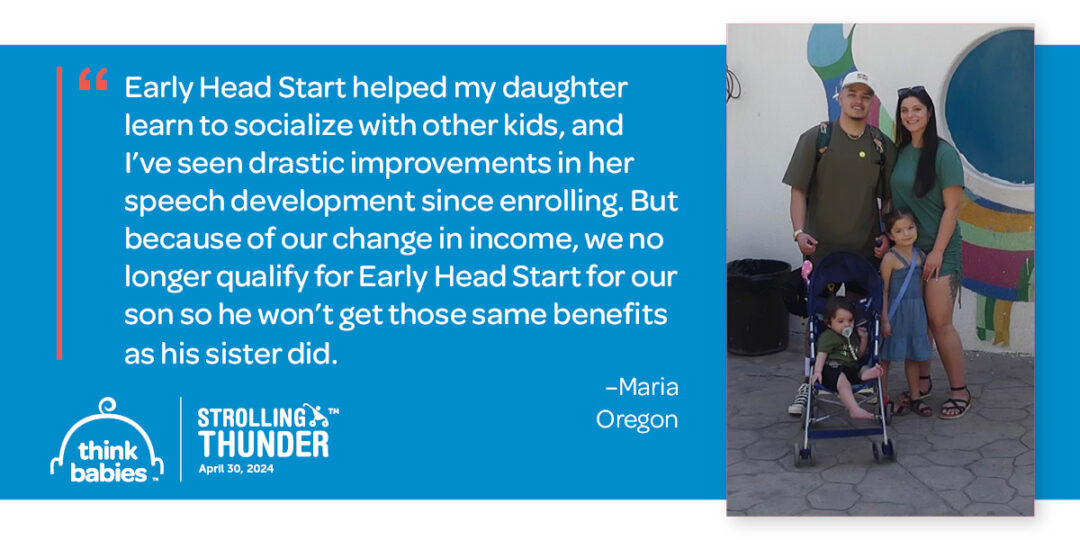Supporting what all families need to thrive.
The foundation for lifelong learning is built during the critical early years.
Babies are born curious and ready to learn! The foundation for lifelong learning is built between pregnancy and age three. Young children in poverty are at risk for falling behind starting at birth, but Early Head Start helps. Reaching more families with proven services to support positive early development is an important policy to promote school readiness.
Early Head Start offers babies safe care and crucial developmental services, helps parents find employment and work toward their goals, and works at the community level to address the needs of the most vulnerable young children and families. Despite Early Head Start’s effectiveness, it reaches far too few eligible families. According to the State of Babies Yearbook: 2023, Early Head Start programs had space for only 11 percent of eligible infants and toddlers.
Early Head Start is the only federal program dedicated to comprehensively promoting healthy child and family development for pregnant women, infants, and toddlers living in families with incomes below the poverty line. As a two-generation program, Early Head Start creates opportunities for both parents and their babies and toddlers, helping parents improve their economic security while ensuring their young children are on a solid path to engage in lifelong learning.
Early Head Start is a critical support for babies and their families. Learn more.

